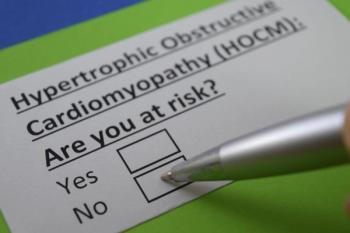
Real-Time Pharmacist Feedback Improves Heart Failure Medication Management | AHA 2024
Results of a study at the Veterans Health Administration found that feedback and education led to better medication outcomes for patients.
Real-time feedback and education for pharmacists relating to their treatment of patients with heart failure increased the frequency of patient interactions and prescribed more adjustments to heart failure medications, according to research results presented at the American Heart Association 2024 Scientific Sessions.1
In the PHARM-HF A&F Study, researchers evaluated a cohort of 120 pharmacists responsible for the care of 7378 patients with heart failure across 345 primary care teams at the Veterans Health Administration (VHA), hypothesizing that practice audit and feedback could increase medication optimization by primary care pharmacists and ultimately improving the use of
“In the VHA, primary care pharmacists can provide medication counseling, necessary monitoring and they can independently prescribe indicated therapies,” said Alexander Tarlochan Singh Sandhu, MD, MS, a cardiologist specializing in heart failure at Stanford University in Palo Alto, California, and lead study author, in a news release.2 “They are empowered to identify individuals who would benefit from guideline-recommended treatments that are not being prescribed, such as heart failure medical therapy, and permitted to contact the patients to initiate therapy.”
Prior to study initiation, each pharmacist averaged 2 patient visits per month inclusive of heart failure care and 0.4 visits per month inclusive of a heart failure medication adjustment.
Pharmacists were randomly assigned 1:1:2 to 1 of 3 study arms: audit and feedback (n=28), audit and feedback with targeted patient information (audit and feedback+; n=30), and usual care (n=62). All pharmacists received monthly educational sessions and resources on heart failure medications; those in the audit and feedback or audit and feedback+ groups also received monthly emails detailing the number of heart failure medication-related actions over the previous 3 months, with site-level and regional comparisons and heart failure medication rates. Those in the audit and feedback+ group additionally received lists of patients who were eligible for heart failure medication titration.
READ MORE:
Outcomes were evaluated between January and May 2024. During that time, pharmacists in the audit and feedback or audit and feedback+ groups had 1.2 more monthly heart failure encounters (95% CI, 0.8-1.7) and 0.2 more encounters with heart failure medication adjustment (95% CI, 0.1-0.4) compared with the usual care group, with no significant differences between the 2 audit and feedback groups.
Patients in clinics with either group of audits and feedback pharmacists were more likely to receive new mineralocorticoid receptor agonist prescriptions (11.3% vs 9%), with no other significant differences in prescriptions.
“We found that when pharmacists participated in the audit and feedback group, they were more likely to identify patients who would benefit from medication adjustment, set up new appointments with patients to adjust heart failure medications and adjust heart failure medication therapy during appointments, thus, potentially leading to improved heart failure management and better patient outcomes,” Sandhu said.
He continued, “This shows one approach to increasing the use of pharmacists to improve heart failure medication use, and it may also be applicable to other chronic diseases,” he added. “This is a major opportunity to improve health for more patients, especially in a system like the [VHA] with a large, robust network of pharmacists nationwide.”
The primary study limitation was the visibility of patient-specific data provided to pharmacists not being restricted to their own cohort of patients.
Future studies will evaluate the longer-term impact of pharmacist management on medication rates and qualitative interviews with pharmacists to better understand what worked and what needed improvement.
READ MORE:
References
Sandhu AT, Steverson AB, Sahay A, et al. Evaluation of randomized audit and feedback to increase heart failure medication optimization among primary care pharmacists in the Veterans Affairs Health Care System (PHARM-HF A&F Study). Presented at: American Heart Association 2024 Scientific Sessions; November 16-18, 2024; Chicago, IL. Abstract 4168636
Giving pharmacists feedback improved care for veterans with heart failure. News release. American Heart Association. November 16, 2024. Accessed November 20, 2024.
https://newsroom.heart.org/news/giving-pharmacists-feedback-improved-care-for-veterans-with-heart-failure
Newsletter
Pharmacy practice is always changing. Stay ahead of the curve with the Drug Topics newsletter and get the latest drug information, industry trends, and patient care tips.























